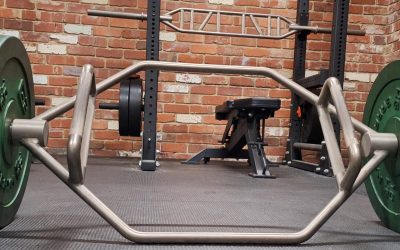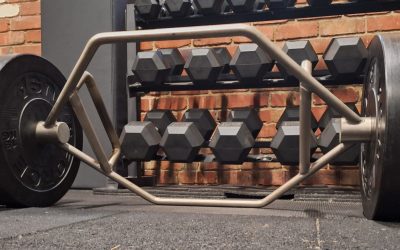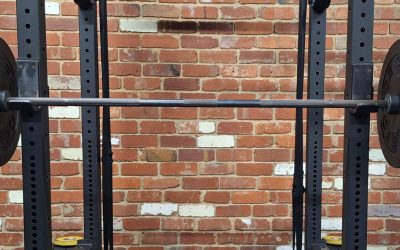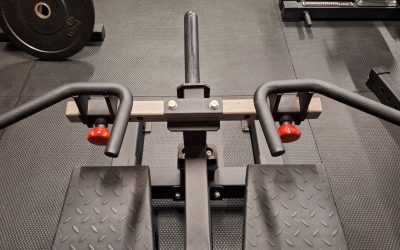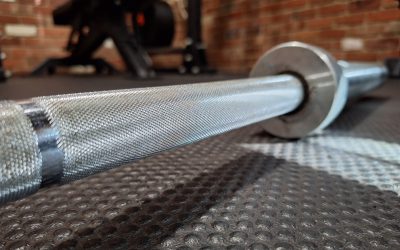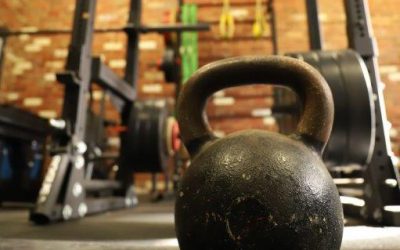Incorporate some strength training with Olympic lifts for sports performance and general physical strength.
Over the last couple of months, I’ve been getting back into strength training with Olympic lifts in a more focused way adding in the 3 Power versions of the lifts as part of my training blocks. I’ve kept the sets to 3 and low volume while working the other traditional strength barbell lifts. It resembles more a sports power approach and not a specific weightlifting one.
When it comes to understanding and appreciating Olympic lifting it’s not just a matter of just doing the snatch, clean and jerk and you are done. For the committed individuals who solely pursue this dynamic sport as their choice in exercise. It’s about learning all the intricacies that go along with the improvement of these 3 technical lifts. The fun part goes with learning the semi competition lifts and important strength exercises. Add in some remedial work with associated stretches and you have plenty to work with. When improving your strength training with Olympic lifts for sports performance. The power versions are a must.
As an older adult a proper warmup and mental preparation gets me ready for weightlifting. With my extended background in kettlebells, it’s an efficient way for me to ready myself for the movements. I work them until I’m sufficiently warmed up then use the barbell. Depending on time of day and temperature this could be 10- 20 minutes.
Weightlifting (Olympic) is great for building your explosive power and fun when you have good form. The power clean, jerk and snatch can work a treat in delivering results on their own. Combined these are all you will need to reap the benefits of explosive strength. Especially if you are a sports power athlete that requires to be more hard wearing or wanting an increased strength base.
Let’s start with general physical preparedness.
No point in putting someone under load when they can’t even press the weight above the head or deal with the loading placed on lower limbs. Firstly, build some base strength with the following.
Barbell standing shoulder press. Without a doubt the shoulder press will develop and impressive upper body strength base while establish a good range and supporting lockout strength. The ability to hold onto the weight above the head with the shoulder blades elevated also provides feedback on stability and balance level. A classic lift as the first exercise in this progression. As a stand-alone the standing barbell shoulder press is an excellent exercise for upper body (shoulder) development.
Barbell back/front squat. With most sports the ability to generate power from the hips and legs can only begin with one of the pillars of strength. The barbell squat will add muscle quicker than any of the other available movements that tries to replica this fundamental movement. When it comes to pure strength the squat reigns supreme. Most exercises are supported by leg strength. Remember it starts from the floor/ground. The front squat will prepare you for the catch when performing cleans. Plus, an excellence core developer and great for flexibility in the bottom phase.
Deadlift. A dynamic exercises delivering a whole body workout. With the main area worked been the posterior chain muscles including the glutes, lower back, hamstrings and spinal erectors. Expect you grip strength to improve and core strength in supporting the loading. The upper body gets some work in stabilising the hip drive. A total all round exercise that is a must for most programs. The added value you get from the deadlift is learning proper mechanics in performing a hip drive properly. An essential move when performing strength training with Olympic lifts.
Overhead squat and core stability.
The overhead squat has many benefits. For the Olympic lifts the ability to apply this movement is critical in both holding a weight above your head and be able to squat down to the floor. Not for specific technical use, just strength. A typical gym squat to parallel doesn’t cut the mustard with Olympic lifting. You need to be able to get down low. The overhead squat will let you know where you are at. Performed with a barbell or PVC pipe alone is enough for the beginners and is a nice warmup for the more experienced.
Another core option is the use of the landmine rotations for an excellent workout. The landmine allows for stability and strength while you are standing. With a heavier load also helps with holding strength for the upper body. The main muscles worked are the obliques and deep core muscles. A great combination with the overhead squat.
The effectiveness of strength training with Olympic lifts. The power lifts.
Power clean. The power clean is an explosive all over body builder used by athletes and weightlifters for the benefits that it brings. It’s an easier version to teach and has excellent carryover effects for power sports. A staple for most team athletes and popular with track runners. It works you hamstrings, quads, glutes, calves, shoulders and core. The focused area is referred to as the posterior chain. It teaches you to balance out power, flexibility and coordination. Old school programming had the bench press and clean as an effective combination. Like the clean, the catch position is with slightly bent knees. Not full squat.
Power jerks. The power jerk is received in the partial squat position like the push jerk. However, the feet move when performing the power jerk. While they stay planted during the push jerk. Benefits include upper body muscle development an improvement in your posture, balance and stability. Builds core strength and stability, enhances motor skills and improves anaerobic endurance. With adequate loading power jerks keep you burning calories post exercise and help build an impressive and durable upper body.
Power snatch. Next is the popular power snatch where you’re starting to drop under the bar and it’s where you begin to appreciate the overall return of this dynamic movement. A great exercise that develops leg drive and hip power. The power snatch is started from the floor and received overhead in a partial squat. A great choice in the development of total body power and teaches the body to recruit maximum muscle fibres.
Balancing out your strength training with Olympic lifts.
In summary, the clean and jerk with the snatch are the two dominant lifts that you can perform for absolute power transfer. They also have an enormous carry over effect to several sports. These are a staple when training for power sports like track running, combat sports and track cycling to name a few. I use the power version of these lifts in relation to building up a power base for clients who practice martial arts, play AFL, rugby and even gridiron.
Overall, all the movements have an enormous benefit, it’s up to you to work through in a safe and progressive manner in reaping the rewards. The importance is to first get the patterning done and correct any deficiencies before you go all out to grip and rip the bar off the floor performing a snatch into a deep squat.
Best to work on getting your body stronger with some compound strength work, get your flexibility right then slowly progress with the Olympic lifts. So, work the squat variations, the pulling /deadlift movements and the overhead press and get strong first.
It’s important to have a balanced program that will allow you to work in all the element of strength, conditioning and power. For some the weekly turn around works well. For me at my age the two weeks around suits me better. It allows me to cover all the moves and properly recover.
Lastly, have some fun with these powerful exercises. Learn them well and with consistency feel the strength and power these Olympic lift variations deliver.
